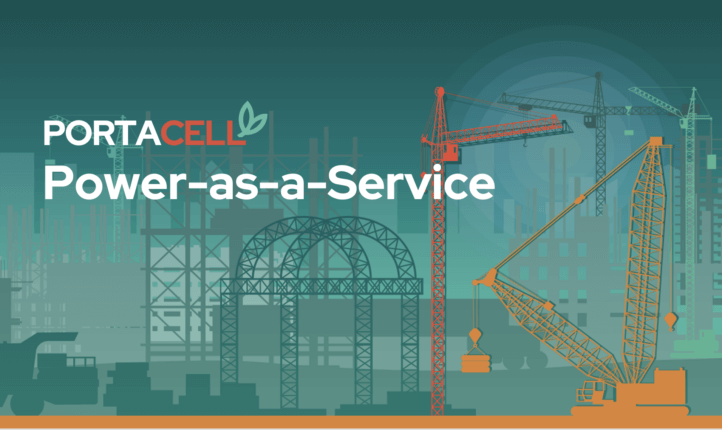London’s tough regulations on emissions for NRMM already expose construction companies to potential costly project delays. If the Mayor’s advisors get their way, charges and financial penalties could be next (Source: London Assembly Environment Committee March 2022).
Outside the capital, key infrastructure projects like HS2 and the Thames Tideway Tunnel are starting to adopt the same regulations, and other UK cities and the Government are also eyeing them up with interest.
This growing legal and financial emissions risk is prompting many companies to look at ways to ditch diesel from their site operations altogether. But choosing the right alternative can have repercussions for other areas of revenue. Here’s a quick look at some of them.
- Carbon offset inflation
Diesel, biofuels and gas to liquid technologies, including most hydrogen, emit carbon during manufacture, storage, transport or at point of use. The only way to decarbonise them in line with net zero targets to either capture the carbon or purchase an offset. Experts predict a tenfold increase in the price of offsetting by 2030 as it becomes more exacting in requirements to demonstrate contractors are not green washing. Choosing an alternative with ultra-low carbon emissions across its entire lifecycle is an insurance against these costs. With our certified renewable power and zero-emission transport, Portacell is a totally zero emission source-to-site diesel alternative. - Lost revenue
Outside London, most demand for decarbonisation in construction comes from infrastructure clients and investors using their buying power to reduce embedded carbon in supply chains. HS2 and the Thames Tideway Tunnel have adopted NRMM regulations even for works outside London and the UK’s largest procurer of construction projects, the Government, now wants whole life carbon assessments for public works. Others are likely to follow suit, such as the Highways Agency’s Lower Thames Crossing. Portacell is zero emissions and zero carbon across its whole lifecycle. - Transition from diesel
All energy choices, even so-called drop-in fuels, have ‘on costs’; the name given to the time, preparation and additional expenditure needed to set up the correct site infrastructure and working procedures to use them safely. They can include ancillary equipment like bunds and bowsers, noise or vibration attenuation and monitoring, and, for novel fuels like hydrogen, non-standard equipment, specialist permissions, exclusion zones and external skills. Portacell solutions use zero-emission battery power, an established and understood technology, and needs little more than hardstanding and a turning circle for 20ft lorries. - Programming and logistics
There are considerable labour and programming costs involved with planning, permitting, demand predictions, load-matching, spot checks on unit/s, monitoring fuel and fluid levels, re-fuelling, and site logistics. Electricity is already used and well understood on sites and the requirements for batteries require little difference in established practice. With Portacell all the monitoring and checking is undertaken remotely by us and replenishment is seamless. Clients can access this information. Simplified site logistics reduce project programme times, whilst significantly cutting fuel wastage. - Curtailed site operations
Local planning and operating rules for construction sites are geared towards being a good site neighbour. Electricity is a known existing power source on sites, familiar to staff and accepted by other stakeholders including neighbours. There is no explosive, leak or spill risk requiring additional non-standard local liaison. Portacell is a zero emissions service with very low noise, vibration or spill risk. This mitigates the need for site monitoring, additional community liaison and limited working hours, significantly increasing the potential for higher productivity over a project lifetime. - Energy reporting and efficiency
Companies over 250 employees have formal requirements to record energy and submit potential efficiencies to the Government’s ESOS scheme every four years with Investors showing real interest in this performance. Currently calculating energy use on construction sites can be crude; often based on the cost of fuel purchased, with little useful data on levels, types and patterns of usage to inform performance improvements. Portacell is 97% efficient and our smart metering provides new levels of accurate actionable data insight which can be used to inform strategic planning and evidence improved performance and compliance on a project-by-project level. - Fuel cost and availability
Portacell can provide projects with cost-certainty. There are already pressures and concerns about the medium to long term sustainability or availability of low and zero emission fuels. The CLC says demand caused by the transition to biofuels is already making it harder to source sustainably, and it will be some considerable time before the hydrogen market is secure and cost attractive. The global nature of most energy supply chains means delivery issues can cause sudden increases in cost. Thanks to our UK-wide network of long-term exclusive contracts for REGO certified electricity, Portacell is able to cap or even fix its electricity prices for the lifetime of a project.
Get in touch
Ask us anything, we’ll give you a call

Latest news

VIDEO: What is Power-as-a-Service?
Watch a short 90 second video introduction to Portacell’s Power-as-a-Service, with a complete transcript.

The transition to clean NRMM
Supporting the transition to zero emission NRMM The pressure to ditch diesel affects multiple business sectors but none more so

Call for tighter air quality rules as construction emissions progress lags
Building works now cause 18% of UK large particle pollution, says report UK policy makers are being urged to tighten
